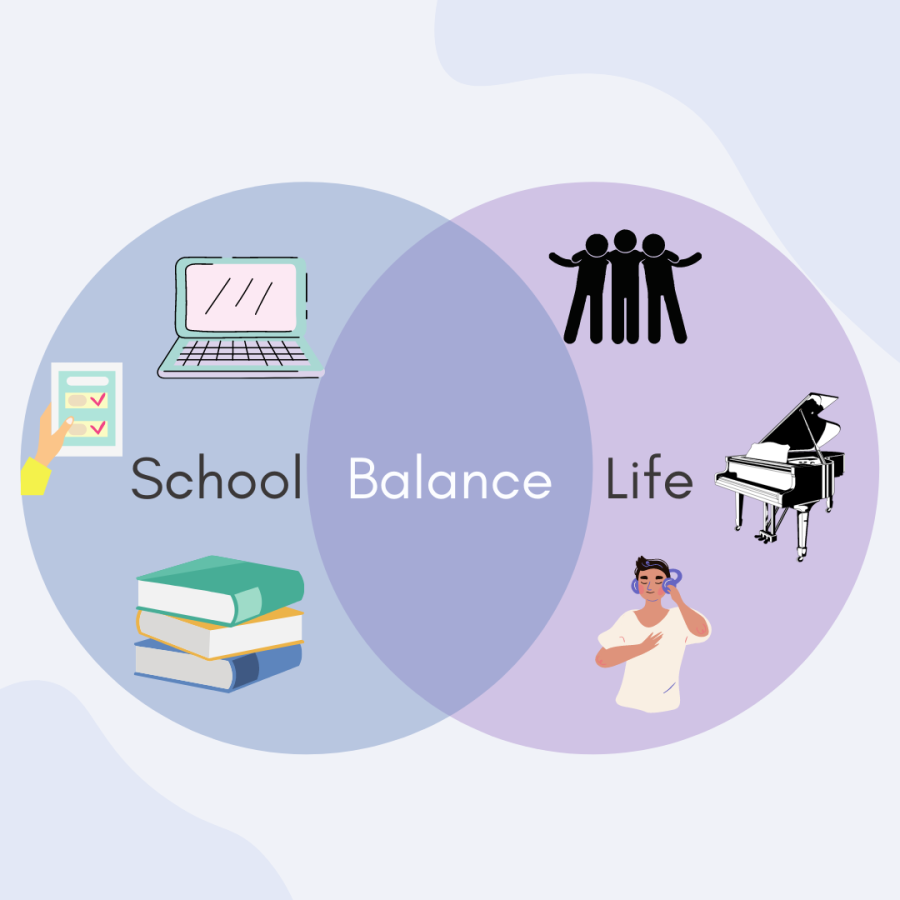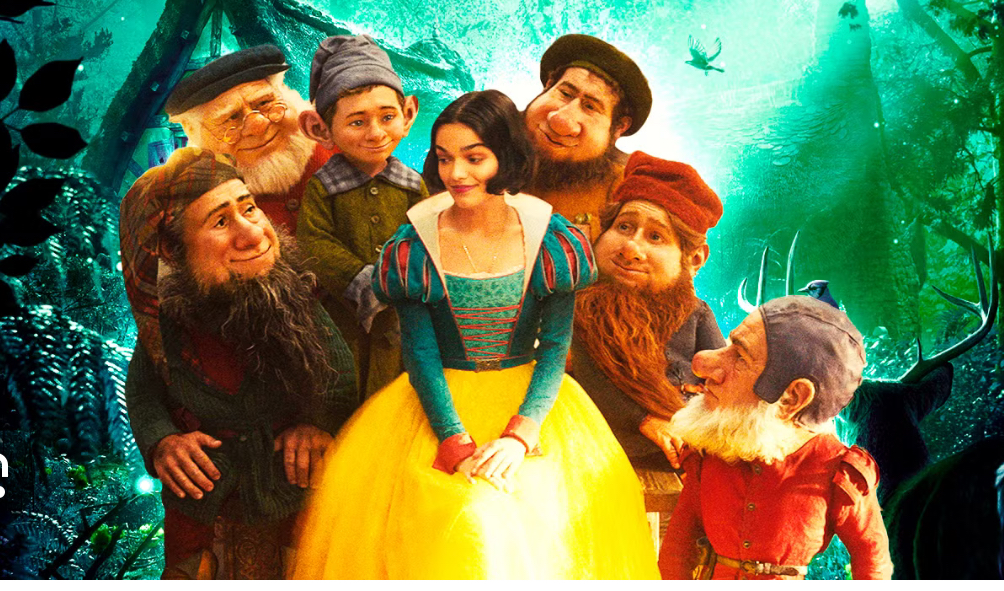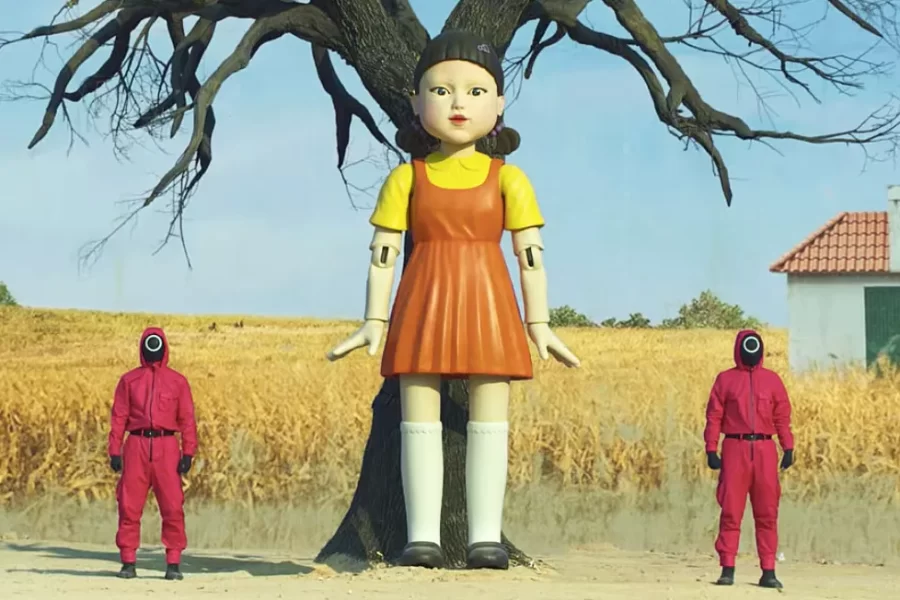Squid Game Review
October 8, 2021
Squid Game, a South Korean survival drama series on Netflix, recently became the number one most popular series in the United States. With so many people talking about the series and its memorable imagery and scenes, I want to answer the question (without spoiling anything): is it worth watching?
In my opinion, yes, it is absolutely worth watching. However, since it involves very dark themes, you should only watch it if you’re comfortable with that.
Squid Game follows the main protagonist Seong Gi-hun, a South Korean man dealing with large amounts of debt. An unnamed, cryptic organization finds out about Gi-hun’s debt and offers to give him an opportunity to pay it off. After accepting, Gi-hun is brought into the games with 456 other players. The games are a series of South Korean children’s games with a twist: if you lose the game, you lose your life. The games continue until only one person is left standing, and the victor wins 45.6 billion won (38.4 million USD), enough money to alleviate all their debt and more.
Throughout Gi-hun’s time in the games, he meets other characters, such as Sang-woo, Sae-byeok, and Ali. These characters have deep character arcs of their own. For example, Sang-woo is a childhood friend of Gi-hun’s who went to business school and ended up in debt after a series of poor decisions. These characters also explore social issues in South Korea. Sae-byeok is a North Korean refugee, and much of her character arc covers how North Korean refugees struggle to get by in South Korea.
Similarly, other parts of the story explore other social issues. Considering that the story is a survival drama, it seems to naturally follow that a lot of emphasis is placed on strength during the games. However, not all of the games necessarily rely on strength, and many characters make the false assumption that they should avoid having women on their team due to their perceived lesser strength. Other games explore the ways we socialize with our friends and enemies and how we work together in groups. In fact, all of the games in Squid Game seem to be imbued with commentary about the way we socialize and engage with stereotypes, assumptions, and groups.
This leads to the overarching theme of Squid Game, which is quite unique and different from similar stories. In Squid Game, every character is deeply responsible for the actions they commit during the game. While the game organizers do deserve a large amount of the blame, Squid Game wears its message about violence on its sleeve: that we are all complicit in and responsible for large-scale systemic violence. The series explores how the players in the games interact with the games and how their actions and beliefs about the game end up maintaining the violent cycle.
However, the show does not stray away from placing the blame on the organizers of the game. Without revealing anything about the show, Squid Game does make it quite clear how unethical and absurd the games really are, and how powerful people end up creating massive systems of violence for profit, and even entertainment. This is not unique to Squid Game, as many stories explore systemic critiques of society and point out the violence that the ruling class creates. However, what makes Squid Game unique is how it brings this theme to an immediate and individual level. The show does not let you leave feeling absolved of the guilt from the violence in society. While it does delve into themes of critiquing the ruling class, the primary focus of the show is critiquing the common person themselves. The message of the show is quite clear: that your actions can end up perpetuating violence just as much as the controllers of that violence.
In this regard, Squid Game is a very challenging show. It makes us question our role in society and how directly responsible we ought to hold ourselves for injustice and violence. The show raises many difficult questions about ourselves that require self-reflection. This is one of the main marks of a good story: that it does not leave your mind after you finish it.
Squid Game is one of those rare stories that stay with us after we finish it, making us reflect on ourselves and question our place in society. It’s no wonder that the show became so popular so quickly.




































